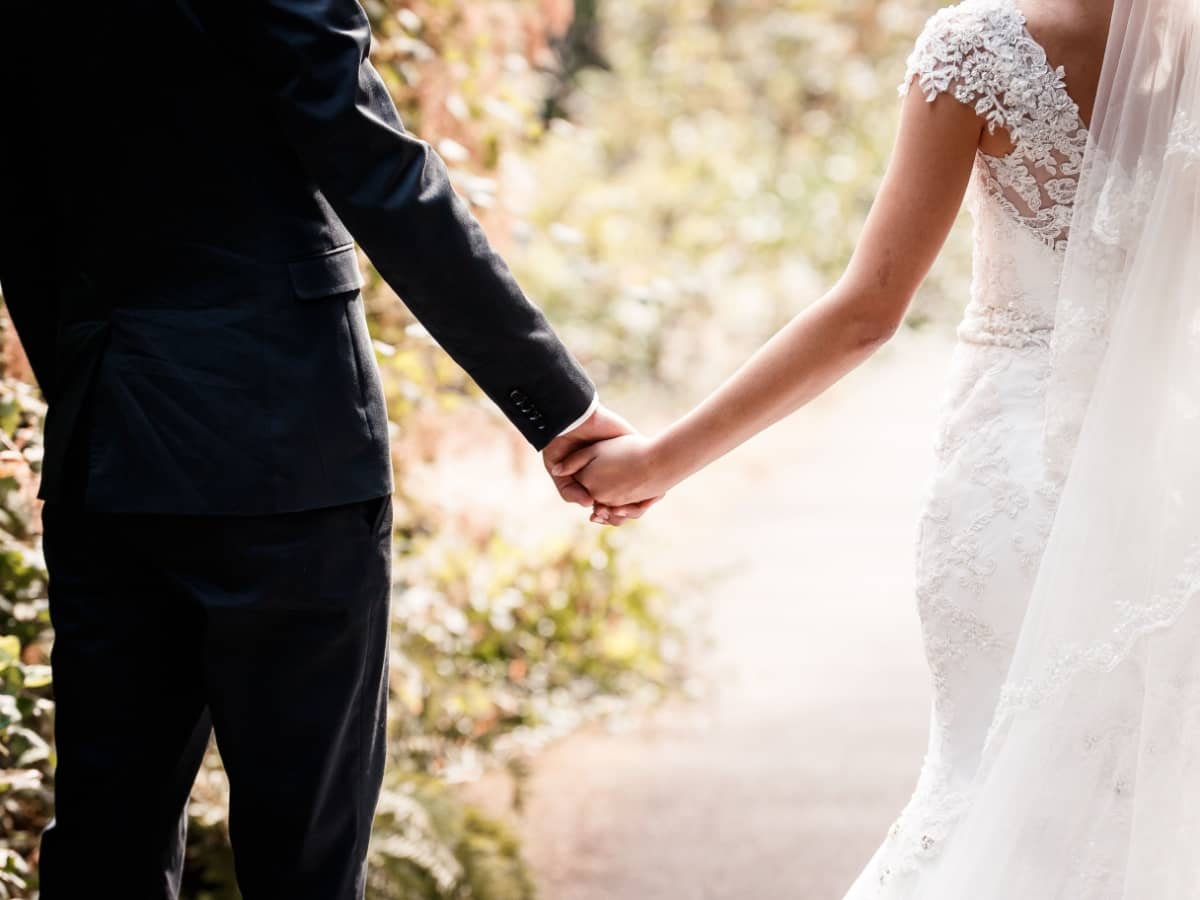--Ecclesiastes
Four years ago, I, Elizabeth Schulz, took Craig Russman to be my lawfully wedded husband. Shortly after the service, a friend introduced us by our new name, Craig and Elizabeth Rusch.
The union of two equals, that's how Craig and I saw our marriage. We were a Catholic and a Jew, finding common ground in our new faith, Unitarianism. We believed that a new last name, a blend of our given names, would be an apt expression of our vision for our new life together.
Embracing a new name meant parting with the identity that last names confer. What did our original names say about us? My maiden name Schulz is Polish, but is often mistaken for German. People assume I'm either Christian or Jewish since Schulz is a common name in both traditions.
My husband's more unusual name, Russman, speaks volumes. It tells of the Russianmen, the Jews who fled Eastern Europe to escape pogroms. The name also marks my husband as one of the Chosen People, a living example of survival of a great tribe through eras of senseless slaughter. This is a heritage we would not abandon lightly.
We considered using just Craig's name, but felt it didn't reflect our vision of an equal marriage. We also considered hyphenating Russman-Schulz or Schulz-Russman, but found those names long and awkward--heavy baggage to ask our children to carry.
So we made a choice that seemed unusual but logical: to combine our names and our heritages, taking Rus from Russman and Sch from Schulz to form the name Rusch.
One of our greatest concerns was how Craig's grandparents, Ethel and Reuben Russman, would react. Conservative Jews in their 80s, the Russmans respected tradition. But their reaction--"I guess that's what kids do these days"--made us feel warmly accepted. Craig's father was uneasy about the idea at first. Several times he told us, "I know a couple who considered combining their names but decided against it," a hint that we should too. But he ultimately respected our decision. My parents took the change in stride; in fact, my father guessed what we would do before we told him.
Both Craig and I have had to endure teasing from other friends and family. Some asked us if we would name our children Craigabeth. Craig especially comes in for criticism. People who think nothing of the fact that a woman would change her name feel uneasy when a man makes that choice. "You are so soft," one friend said. "You are making it more difficult for the rest of us," another buddy complained. Others "forget" time and again that he changed his name. His alma mater continues to send mail addressed to Russman, despite his repeated requests to update their database.
One worry I had was that our descendents would have trouble tracing their roots. So I dug through family birth and death certificates and naturalization documents and interviewed our parents to create a family tree for our children. My Irish great-grandmother's name, Annie Callahan Looney, conjured up rolling hills and green pastures. Bitter winters and a warm farmhouse echoed from my Polish great-grandmother's name, Frances Growska. My grandmother's maiden name, Weinschreider, accompanied her from Lithuania to Ellis Island. No one can recall her mother Tekle's maiden name. It is lost forever to our family.
A family name can capture but a tiny sliver of a family's history. To preserve more takes more work--it takes an urge to preserve and retell your family's stories. But a family name can also reflect your vision for your marriage and your relationship with your spouse and children.
What will our children do with their names? We don't know. Our sons and daughters may want to keep the name Rusch. They may choose to form a new name when they start a family. Or they may decide to do something else entirely. That is fine with us. We only hope that the story of our name will challenge them to choose the path that best reflects their deepest held beliefs about family history, religion, and marriage.

